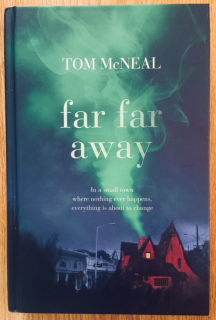 The coin flip between uncovering the truth and losing credibility by using an anonymous source can be risky. Source: Nate St. Pierre (http://natestpierre.me/wp-content/uploads/2012/05/flippingCoin.jpg)
The coin flip between uncovering the truth and losing credibility by using an anonymous source can be risky. Source: Nate St. Pierre (http://natestpierre.me/wp-content/uploads/2012/05/flippingCoin.jpg)
When you flip a coin, you have two possibilities: head or tails. The same can be said for using anonymous sources – you either win or you lose, based on your ethics.
Ethical conundrums in journalism is a tale as old as time. The world is sometimes evil and as a journalist, you are in a position to uncover that evil. However, such information might come from an anonymous source every once in a while. Anonymous sources can be extremely useful when reporting a controversial story, but it can also be the journalist’s downfall if the information is untrue.
The relationship between journalists and their unnamed sources can be messy. There are many hurdles to jump before publishing information provided by a masked figure: a journalist should investigate the source’s intentions, whether they are trying to blow the whistle on injustice or cause malice. Their reason for their anonymity should always be justifiable. The information they provide might be extremely far-fetched and it would then fall on the journalist to further investigate the claims. It is thus of vital importance that a journalist stand firmly behind the ethical line they, or the publication they work for, has drawn. This is where a journalist must abide to introspection and flip the coin of ethics.
As a journalist, you can decide whether to subscribe to the practice of using anonymous sources by taking an ethical point of view. A utilitarian approach would compel you to adhere to summum bonum – a Latin phase meaning ‘the greatest good.’ Whatever you publish, you do so in public interest, whereby your information would ‘do the greatest good’ by informing the public of wrongdoings, injustice, etc. The consequences of doing so would then be calculated based on the outcome of the decision. The sole objective of publishing an anonymous source would then be the ‘greatness’ of the outcome. However, Deborah Potter states in The Handbook of Independent Journalism (2006: 57) that unlike doctors, journalists are not expected to promise to do no harm. It is thus up to the journalist to implement the ethical decision of utilitarianism to publish a story with an anonymous source to ensure that ‘the greater good’ is fulfilled towards not only the public, but the source as well.
Okay, go!
Using an anonymous source can be more easily justified if you publish in the name of public interest. The Society of Professional Journalists (SJP) mentions in an article on anonymous sources that “Anonymous sources are sometimes the only key to unlocking that big story, throwing back the curtain on corruption, fulfilling the journalistic missions of watchdog on the government and informant to the citizens. But sometimes, anonymous sources are the road to the ethical swamp.” Sometimes, they only way to uncover a scandal is by using a covered source. Practice summum bonum and you will likely publish the story with an anonymous source if you know it will benefit the public. However, with this being said, the public has the right to know as much about a story as they can and should thus be taken into consideration before promising anonymity to a source.
 A utilitarian approach allows the journalist to ask whether using an anonymous source will harm the public or contribute to ‘the greater good’. Source: Emma Grey Ellis (https://www.wired.com)
A utilitarian approach allows the journalist to ask whether using an anonymous source will harm the public or contribute to ‘the greater good’. Source: Emma Grey Ellis (https://www.wired.com)
Protecting your source should be a priority. The Press Code states “the protection of sources is a basic principle in a democratic and free society.” Sometimes a source’s life could be in danger and needs to retain anonymity to ensure no harm is done to them. This is quite a feasible reason to keep a source anonymous and as a journalist you are responsible for informing your readers of such a situation.
The road not taken
Anonymous sources should be avoided if it creates a single-story narrative. According to the Press Code, an anonymous source can and should only be used when the journalist is able to corroborate the statements made/information given. In doing so, the journalist will avoid a single-story and possibly breaching the Press Code. In 2009, The Times was accused of using an anonymous source ‘recklessly’ when publishing an article pertaining to a lunchtime conversation between former presidency director general Frank Chikane and former public enterprises minister Alec Erwin at an ANC elective conference back in 2007. They were said to have been discussing Thabo Mbeki’s choice to either take himself out of running for the presidency or ‘face of open hostility by supporters of Jacob Zuma.’ This information was provided by an anonymous source, which Times Editor Ray Hartley felt to be trustworthy. The Press Ombudsman rejected the misrepresentation of the conversation as no other parties that attended the conference were asked for their opinion. If there is no other person willing to give information substantiating the anonymous source’s claims, be weary to publish.
You should also keep your credibility in mind before you publish. Deborah Potter writes in The Handbook of Independent Journalism (2006: 54) that “The credibility of the press is linked to its commitment to truth, to the pursuit of accuracy, fairness, and objectivity.” Using anonymous sources degrades your credibility, however big or small, because the public want a name with information. If you are writing a story with your only source of information being anonymous, you’ll most likely lose the trust of your readers. Take care when sourcing information, and make sure you have other credible sources backing the anonymous one.
 Always cross-check information anonymous sources provide. Their intentions might not be as pure as you’d like to believe. Source: https://blogs.spjnetwork.org/kunkel/
Always cross-check information anonymous sources provide. Their intentions might not be as pure as you’d like to believe. Source: https://blogs.spjnetwork.org/kunkel/
Some journalist’s live for every ‘like’ or ‘retweet’ their article generates. How do they keep things interesting? Sensationalize every story. Unfortunately for them, using anonymous sources to sensationalize your story will not work in today’s age with other journalists or the public calling ‘fake news’ on dodgy information.
When using anonymous sources, you flip a coin: you set the record straight, uncover the truth and expose injustice, corruption etc., or you fall into a trap of incredibility. The only way to truly justify the use is to back your choice up with ethical principles you and/or your publication adhere to. Then and only then can you ask yourself: heads or tails?
 An anonymous source worth revealing. Source: MemeMan https://www.pinterest.co.uk/lipscombspj/journalism-memes/
An anonymous source worth revealing. Source: MemeMan https://www.pinterest.co.uk/lipscombspj/journalism-memes/
(Words/ 1003)
Advertisements Share this:





